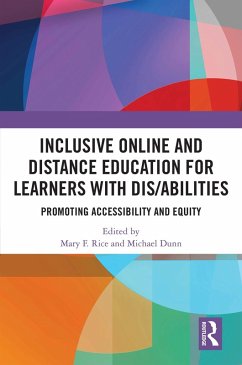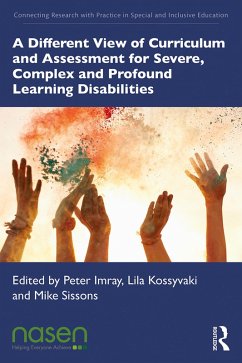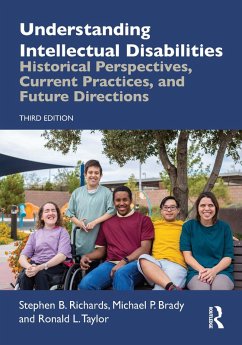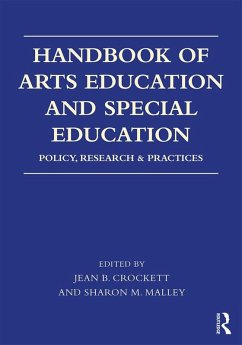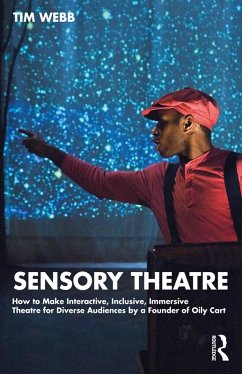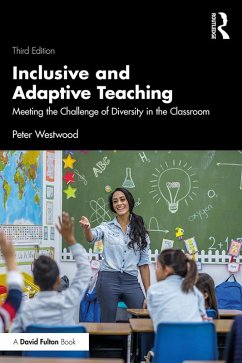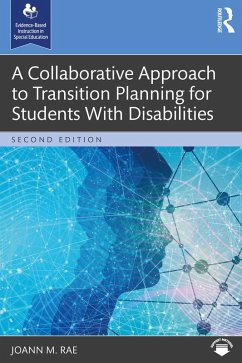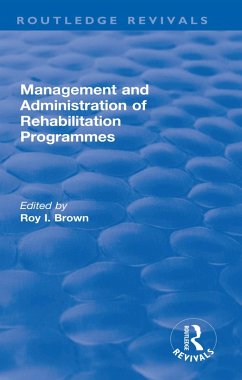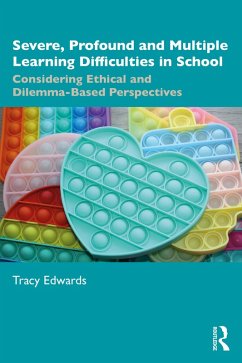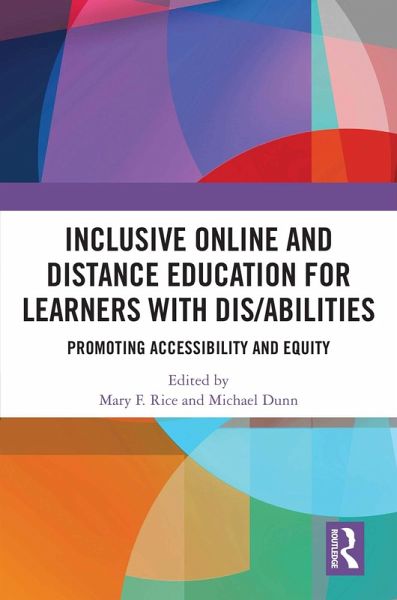
Inclusive Online and Distance Education for Learners with Dis/abilities (eBook, ePUB)
Promoting Accessibility and Equity
Redaktion: Rice, Mary F.; Dunn, Michael
Versandkostenfrei!
Sofort per Download lieferbar
38,95 €
inkl. MwSt.
Weitere Ausgaben:

PAYBACK Punkte
19 °P sammeln!
The term Inclusive Online Education has generated great interest within and across educational levels and contexts, yet practical applications of it remain elusive in many institutional settings. Chapters in this book highlight define and interrogate definitions of inclusion. The research studies reported here focus on moving the conversation about inclusive online education away from individual accommodations for which students must qualify, to models where learning experiences are designed for the success of all students and teachers-both technically and relationally.While some authors do me...
The term Inclusive Online Education has generated great interest within and across educational levels and contexts, yet practical applications of it remain elusive in many institutional settings. Chapters in this book highlight define and interrogate definitions of inclusion. The research studies reported here focus on moving the conversation about inclusive online education away from individual accommodations for which students must qualify, to models where learning experiences are designed for the success of all students and teachers-both technically and relationally.
While some authors do mention the need to know and understand the Universal Design for Learning (UDL), the authors in these chapters go beyond UDL to include understandings about historical challenges with inclusive education, emerging understandings about designing strong online instruction, and how placed-based thinking and social settings provide resources from which to draw in creating online learning environments and experiences that are not only humanized but humane. This book highlights research focused on moving the conversation about inclusion away from individual accommodations for which students must qualify to models where learning experiences are designed to address historical inequities and promote success for all students and teachers. Collectively, the chapters underscore the need to choose materials, design assessments, plan instruction, and engage with students in accordance with relational commitments to equity.
Inclusive Online and Distance Education for Learners with Dis/abilities will be a great resource for academics, researchers, and advanced students of Education, Education Policy, Educational Research, and Disability Studies in Education. The chapters included in this book were originally published as a special issue of Distance Education.
While some authors do mention the need to know and understand the Universal Design for Learning (UDL), the authors in these chapters go beyond UDL to include understandings about historical challenges with inclusive education, emerging understandings about designing strong online instruction, and how placed-based thinking and social settings provide resources from which to draw in creating online learning environments and experiences that are not only humanized but humane. This book highlights research focused on moving the conversation about inclusion away from individual accommodations for which students must qualify to models where learning experiences are designed to address historical inequities and promote success for all students and teachers. Collectively, the chapters underscore the need to choose materials, design assessments, plan instruction, and engage with students in accordance with relational commitments to equity.
Inclusive Online and Distance Education for Learners with Dis/abilities will be a great resource for academics, researchers, and advanced students of Education, Education Policy, Educational Research, and Disability Studies in Education. The chapters included in this book were originally published as a special issue of Distance Education.
Dieser Download kann aus rechtlichen Gründen nur mit Rechnungsadresse in A, B, BG, CY, CZ, D, DK, EW, E, FIN, F, GR, HR, H, IRL, I, LT, L, LR, M, NL, PL, P, R, S, SLO, SK ausgeliefert werden.




